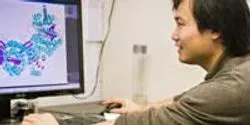Health Science

The federal government has asked University of South Florida (USF) officials to return $6.5 million in federal grant money the university improperly used for salaries and equipment purchases, according to a report from the U.S. Department of Health and Human Services (HHS).

On May 9, the Global Medical Excellence Cluster (GMEC) announced a five-year collaborative agreement with Pfizer Inc. that provides a framework for the research and development of new and innovative medicines for rare diseases.

Tufts University today (May 5) announced that it has licensed a novel silk technology for the treatment of chronic skin wounds to Akeso Biomedical, Inc., an early stage medical device company. The technology was invented by David L. Kaplan, Ph.D., Stern Family Professor of Engineering at Tufts University, and his team of researchers at Tufts’ School of Engineering.

Researchers from the University of Rhode Island are championing a recent breakthrough in the laboratory with hopes it could lead to a vaccine against the pathogen responsible for stomach cancer and to therapeutics for inflammatory diseases.

A new study in the Journal of Food Science, published by the Institute of Food Technologists (IFT), found that common edible flowers in China are rich in phenolics and have excellent antioxidant capacity. Edible flowers, which have been used in the culinary arts in China for centuries, are receiving renewed interest. Flowers can be used as an essential ingredient in a recipe, provide seasoning to a dish, or simply be used as a garnish. Some of these flowers contain phenolics that have been correlated with anti-inflammatory activity and a reduced risk of cardiovascular disease and certain cancers.















